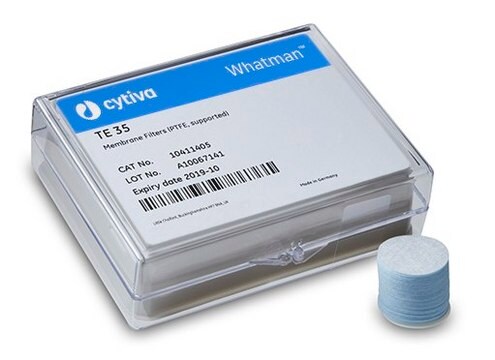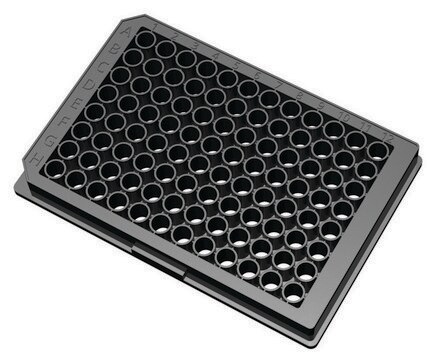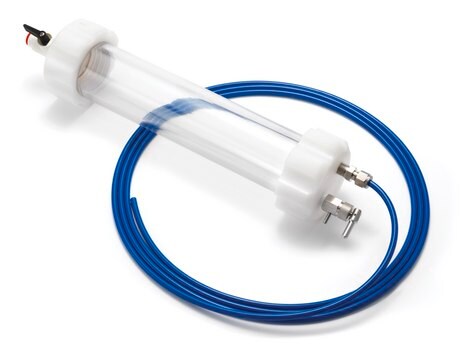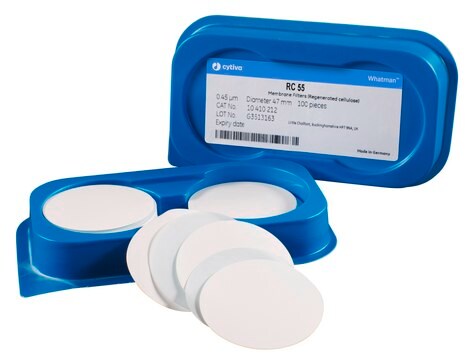WHA10411130
Whatman® PFTE TE38 filter discs 5 μm pore size
white, hydrophobic, PP support ring, 25 ea, 150 mm diam
Synonim(y):
Z750638
About This Item
Polecane produkty
Nazwa produktu
Whatman® PTFE membrane filters, TE38 circles, pore size 5 μm, diam. 150 mm
opakowanie
pk of 25
producent / nazwa handlowa
Whatman 10411130
Whatman Article No. 28415304 (US reference)
Średnica
150 mm
wielkość porów
5 μm
przydatność
suitable for (applications involving aggressive organic solvents, strong acids, and alkalis)
Szukasz podobnych produktów? Odwiedź Przewodnik dotyczący porównywania produktów
Opis ogólny
High chemical resistance and mechanical strength
One of the major applications for the PTFE membrane is the clarification of corrosives, solvents, and aggressive fluids. This includes the important requirement in HPLC analysis for sample filtration where any solid particles can cause permanent damage to the column. The 0.5 µm pore size is normally used. Air and gas sterilization make use of the hydrophobic characteristics of PTFE membrane filters and their ability to stop aqueous aerosols. Pore sizes of 0.2 µm and 0.5 µm are typically used. Sterile* venting of vacuum manifolds, fermentation vessels, and filtrate tanks and containers utilize PTFE 0.2 µm membranes.
Zastosowanie
- Clarification of corrosives, solvents, and aggressive fluids
- HPLC
Cechy i korzyści
- The TE range features polypropylene support material for improved strength and handling
- Temperature resistant up to 120°C
- Can withstand aggressive solvents, liquids, and gases that damage other membranes
Inne uwagi
Informacje prawne
Wybierz jedną z najnowszych wersji:
Certyfikaty analizy (CoA)
Przepraszamy, ale COA dla tego produktu nie jest aktualnie dostępny online.
Proszę o kontakt, jeśli potrzebna jest pomoc Obsługa Klienta
Masz już ten produkt?
Dokumenty związane z niedawno zakupionymi produktami zostały zamieszczone w Bibliotece dokumentów.
Nasz zespół naukowców ma doświadczenie we wszystkich obszarach badań, w tym w naukach przyrodniczych, materiałoznawstwie, syntezie chemicznej, chromatografii, analityce i wielu innych dziedzinach.
Skontaktuj się z zespołem ds. pomocy technicznej





